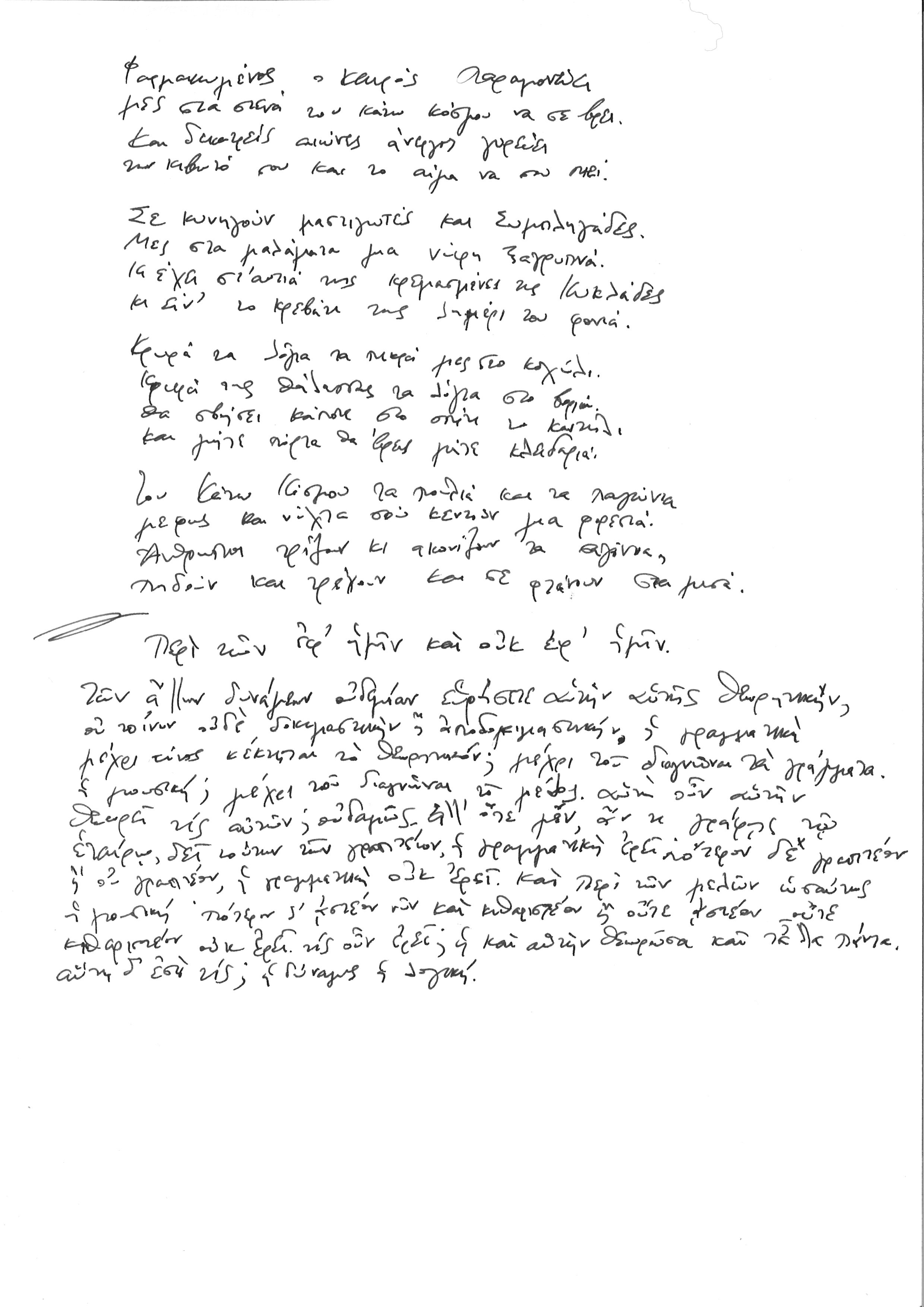Greek: Someone drunk is, or becomes:
1. στουπί, meaning oakum, or tow:
- Oakum: “loose fibre obtained by untwisting old rope, used especially in caulking wooden ships.”
- Tow: the coarse and broken part of flax or hemp prepared for spinning.
It’s a traditional society concept, so the modern metaphorical meaning is the main one. Presumably the point is that, like oakum and caulking, you are soaking up a lot of liquid.
τάπα “barrel lid, barrel tap” has the same connotation.
2. τύφλα “blindness”. Fine distinction being made between the adjective τυφλός “blind” and the colloquial noun τύφλα; applied to people, it only means “drunk”, though there is also the expression δε βλέπεις την τύφλα σου “you can’t see your own blindness”, of someone ignorant. Same derivation as “blind drunk”.
3. σκνίπα “gnat”. So drunk as a gnat. Well, Australian English has “pissed as a newt”, so OK.
The wonderful, magnificent, erudite people at SLANG.gr have put together the following list of words referring to inebriation. Some of those will be nonce ad hoc coinages like on Urban Dictionary, but the calibre of SLANG.gr is far higher:
γιάμπαλο – SLANG.gr
αλοιφή, γκλάβα, γκολ, γόνατα, ζαμπόν, ζάντα,κάκα, κλασμένος, κόκαλο, κομμάτια, κομματιανός, κουδούνι, κουνουπίδι,κουρούμπελο, κώλος, λιάρδα, λιώμα, μανουάλι, μουνί, ντίρλα, πίτα, πλακάκι,σβερκώνω, σκνίπα, σταφίδα, στυλιάρι, στουπί, στρακόττο, τάπα, τούρνα, τούτζι,τσαλμπουράνι, τύφλα, φέσι, φέτα, φσέκι, χώμα.
I’ll mention the words I recognise:
αλοιφή “ointment”, γκλάβα “(informal) head (Slavic glava), γκολ “soccer goal”, γόνατα “knees”, ζαμπόν “ham”, ζάντα, κάκα, κλασμένος “farted”, κόκαλο “bone; (slang) frozen in place, of someone shocked”, κομμάτια “in pieces”, κομματιανός, κουδούνι “bell”, κουνουπίδι “cauliflower”, κουρούμπελο, κώλος “arse”, λιάρδα, λιώμα “molten, pummelled”, μανουάλι “candelabra”, μουνί “cunt; (metaphorically) a mess”, ντίρλα, πίτα “pita”, πλακάκι “tile”, σβερκώνω, σκνίπα “gnat”, σταφίδα “raise”, στυλιάρι, στουπί “oakum”, στρακόττο, τάπα “barrel lid”, τούρνα, τούτζι, τσαλμπουράνι, τύφλα “blindness”, φέσι “fez”, φέτα “feta; slice”, φσέκι, χώμα “dirt; (metaphorically) pummelled, cf. λιώμα)
EDIT: I’m not following all the links, but I like the goal one:
γκολ – SLANG.gr. “I’m goal”, the speculation is, is a corruption of earlier Greek slang είμαι γκον “I’m gone”, where gone is borrowed from English.

